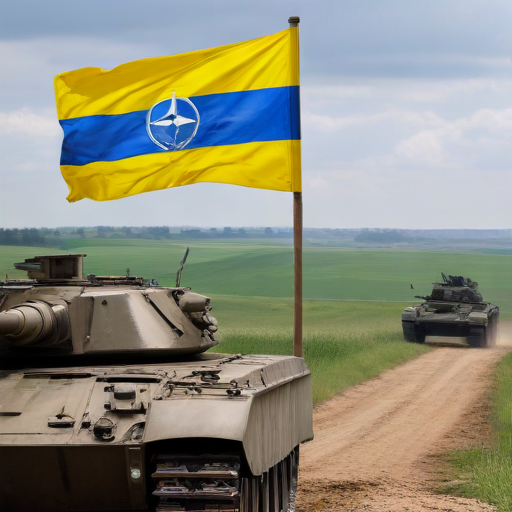Russia’s foreign intelligence chief has asserted that NATO countries aiding Ukraine will face repercussions. This statement comes in the wake of Ukraine’s recent military actions, which included the launch of British-made Storm Shadow missiles targeting Russian territory for the first time, following a similar strike using U.S.-made long-range missiles.
Reports from Russian war correspondents depicted alarming scenes in the Kursk region, where residents heard and recorded multiple explosions and discovered missile fragments. The British government had previously indicated that Ukraine could utilize Storm Shadow missiles within its borders, but has sought authorization from the U.S. to engage targets within Russia for some time.
Additionally, the U.S. has allowed Ukraine to employ long-range missiles specifically in the vicinity of the Kursk area. This development prompted a shift in Putin’s nuclear stance, as he now suggests a lower threshold for nuclear strikes against perceived threats. The international response to these developments has varied, with calls for restraint emerging from China and assurances from Washington that there is no immediate reason to adjust its own nuclear posture.
In a strategic shift, the Biden administration has recently authorized the use of antipersonnel landmines in Ukraine and announced a new military aid package amounting to $275 million, which includes supplies for advanced artillery and ammunition. These steps appear aimed at fortifying Ukraine’s defenses at a critical juncture in a conflict that has now persisted for over a thousand days.
As tensions escalate, the U.S. closed its embassy in Kyiv amid concerns of a significant air attack, prompting other foreign embassies to reassess their operational status. Amid these developments, Ukraine’s parliament approved changes to military mobilization rules that offer exemptions to certain individuals previously detained by Russia, highlighting the ongoing humanitarian considerations amid conflict.
While hosting North Korean troops in the Kursk region and facing a precarious geopolitical landscape, Russia maintains that the U.S.’s military aid to Ukraine aims to prolong the conflict. Moscow has indicated that NATO countries will face consequences for facilitating long-range strikes on Russian territory.
In light of ongoing discussions, Putin has expressed willingness to engage in ceasefire talks yet has firmly ruled out significant territorial concessions that could threaten Russia’s strategic goals. As the situation remains volatile, the potential for peace talks looms, though the path forward remains uncertain.
This situation reflects the complexities of international relations during wartime and underscores the varied tactics nations utilize to assert their interests. The commitment to offering aid to Ukraine, coupled with military actions, suggests a proactive stance aimed at preserving territorial integrity and sovereignty. The evolving dynamics illustrate the delicate balance between military engagement and the ongoing pursuit of diplomatic resolution.
In summary, escalating tensions between Russia, Ukraine, and NATO highlight the urgent need for diplomatic solutions, even as military strategies unfold on the ground. Continued international support for Ukraine could play a pivotal role in shaping the future of the conflict, fostering hope for a peaceful resolution amidst the turmoil.
